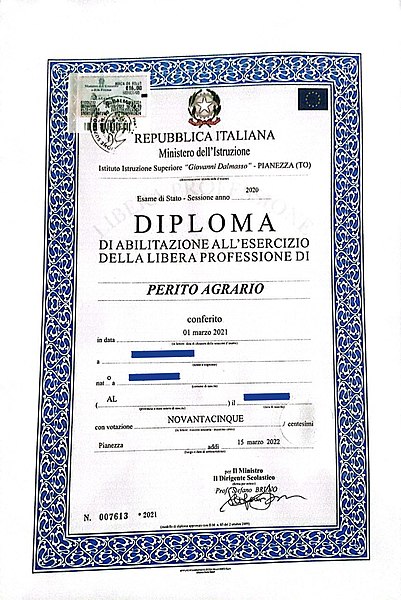Habilitation is the highest university degree, or the procedure by which it is achieved, in Germany, France, Italy and some other European and non-English-speaking countries. The candidate fulfills a university's set criteria of excellence in research, teaching, and further education, which usually includes a dissertation. The degree, sometimes abbreviated Dr. habil., PD, or D.Sc., is often a qualification for full professorship in those countries. The degree conferral is usually accompanied by a public oral defence event with one or more opponents. Habilitation is usually awarded 5–15 years after a PhD degree or its equivalent. Achieving this academic degree does not automatically give the scientist a paid position, though many people who apply for the degree already have steady university employment.
Example of Italian professional qualification: Diploma in Agriculture
An academic degree is a qualification awarded to a student upon successful completion of a course of study in higher education, usually at a college or university. These institutions often offer degrees at various levels, usually divided into undergraduate and postgraduate degrees. The most common undergraduate degree is the bachelor's degree, although some educational systems offer lower-level undergraduate degrees such as associate and foundation degrees. Common postgraduate degrees include engineer's degrees, master's degrees and doctorates.
Meeting of doctors at the University of Paris (16th-century miniature)
Official Spanish University Education Legal Framework 02
Official Spanish University Education Legal Framework 01




